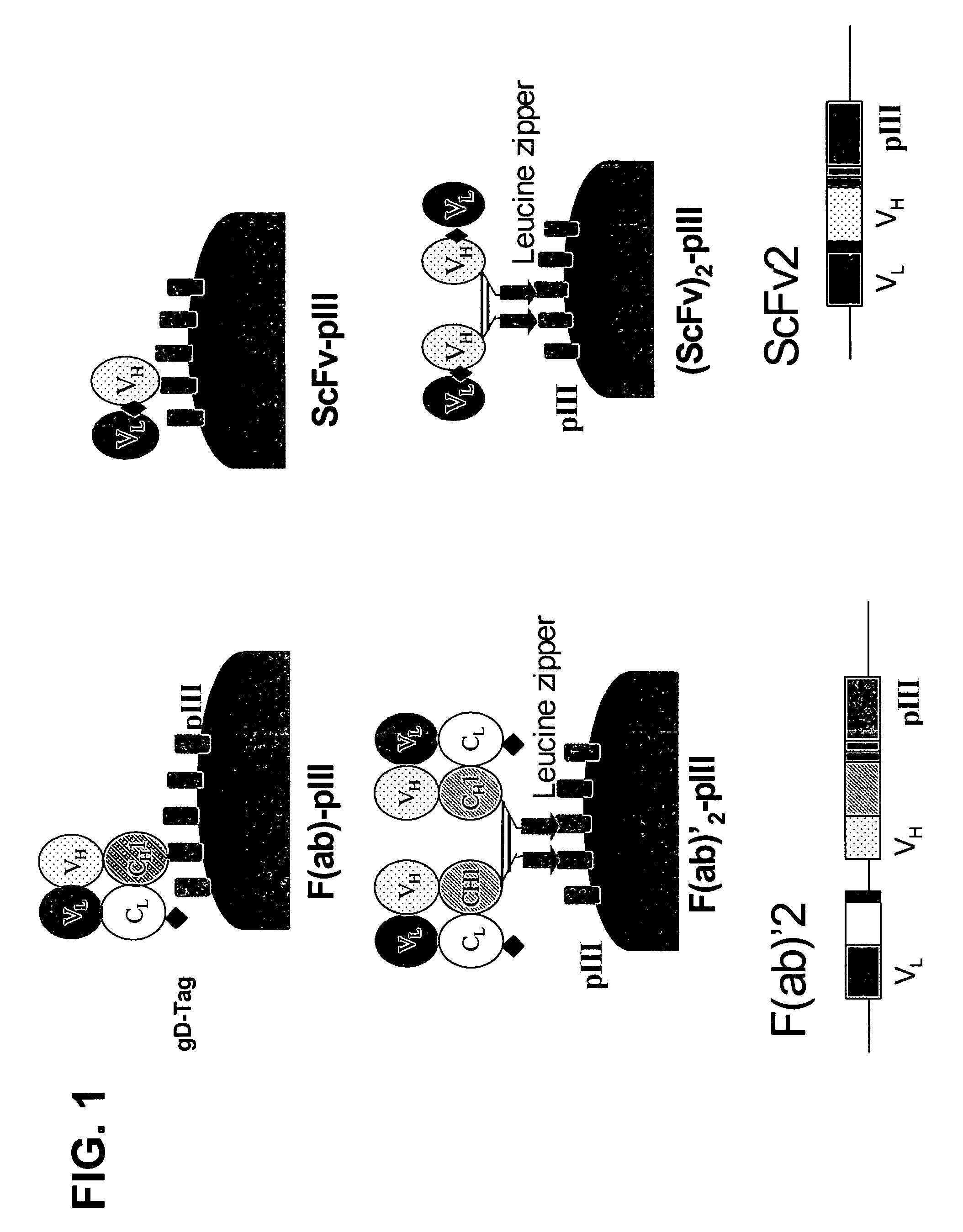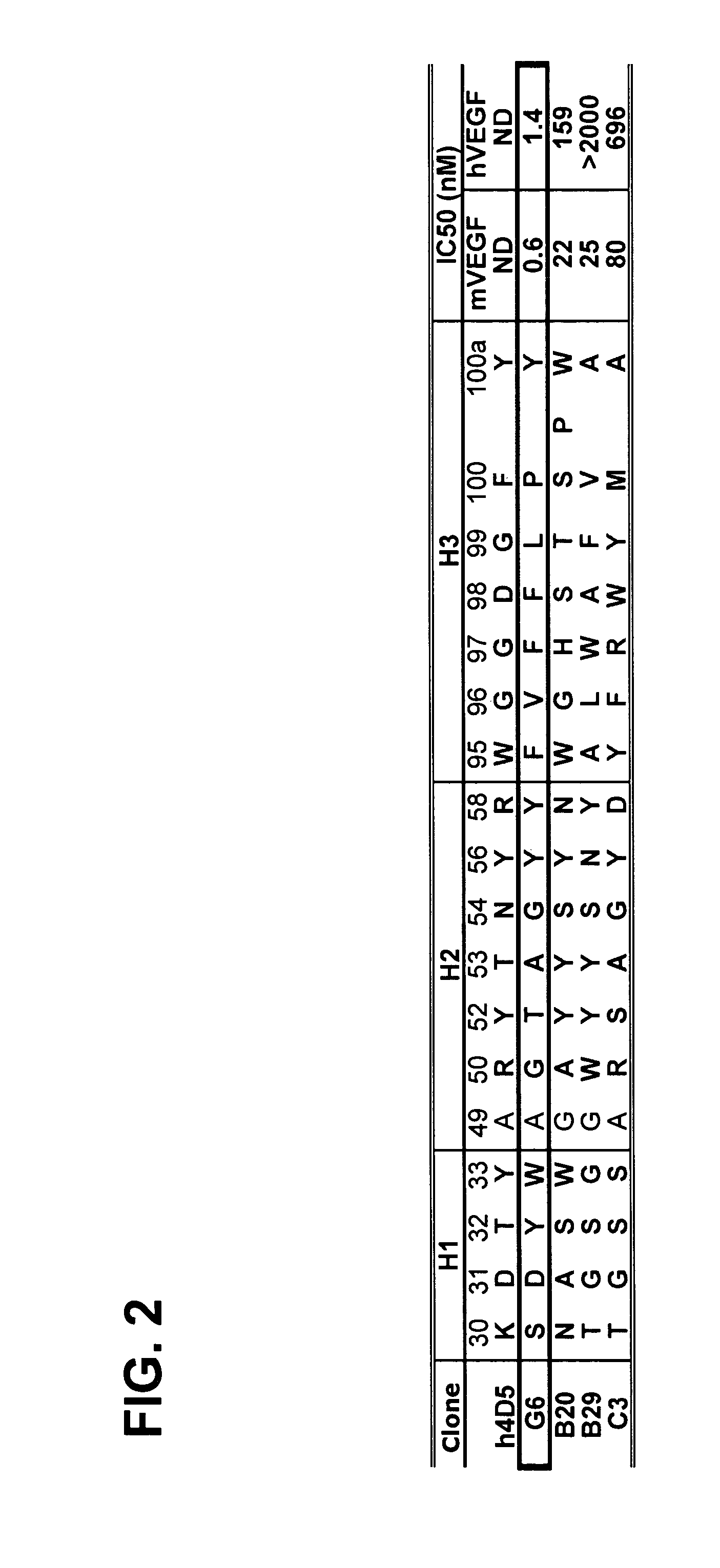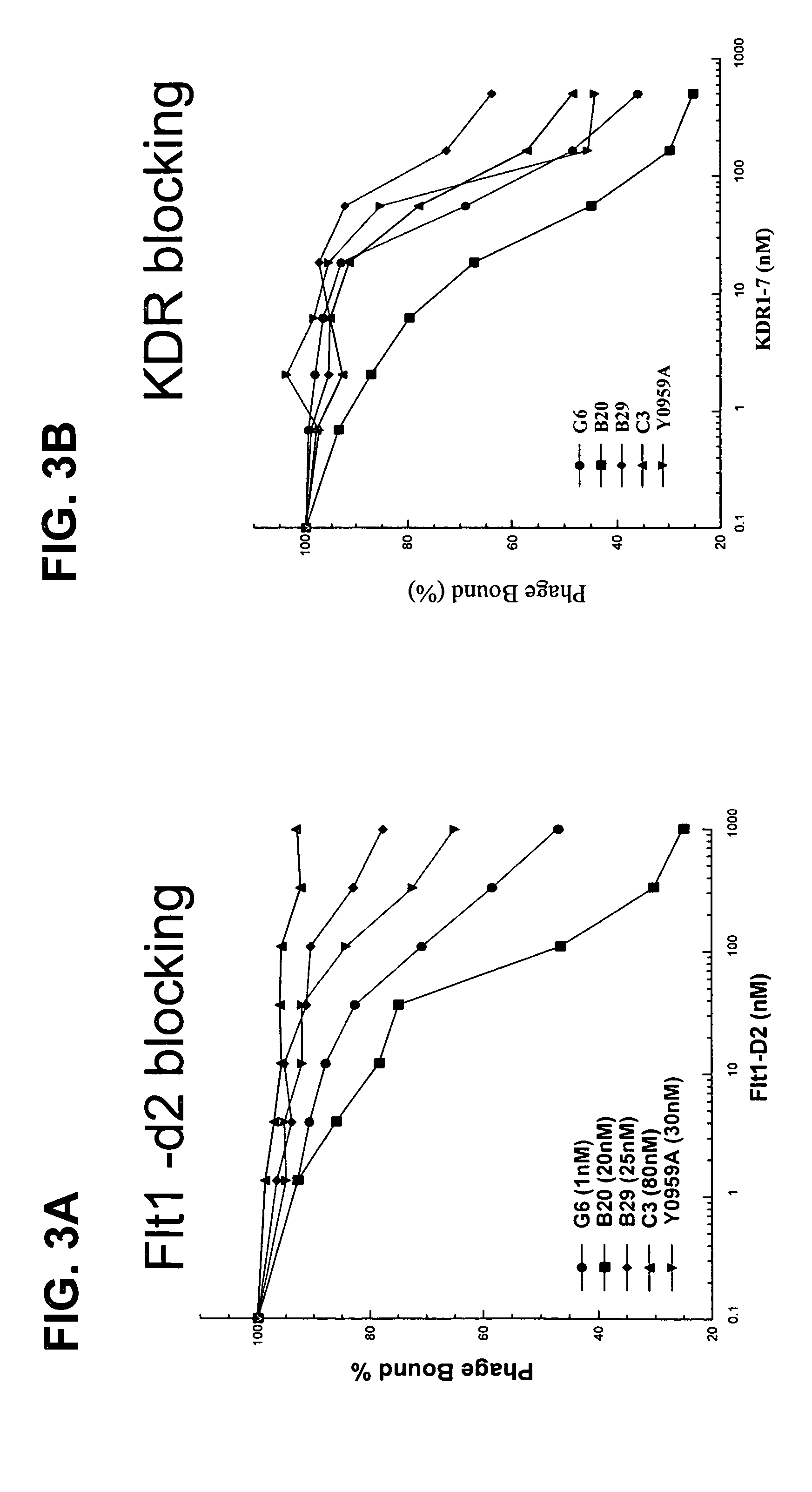Anti-VEGF antibodies
a polypeptide sequence and anti-vegf technology, applied in the field of anti-vegf antibodies, can solve the problems of vascular compartments being necessary, albeit insufficient, and limiting steps, and the general assumption of vascular compartments
- Summary
- Abstract
- Description
- Claims
- Application Information
AI Technical Summary
Benefits of technology
Problems solved by technology
Method used
Image
Examples
example 1
G6 and B20 Derived Antibodies
[0288](a) Selection of High Affinity Anti-VEGF Fab Clones
[0289]The selection procedures for high affinity anti-VEGF Fab clones consisted of various combinations of solid-supported and solution-binding sortings. In solid-supported sortings, the antibody phage library was panned with target antigen coated on NUNC 96-well Maxisorp immunoplate at concentration of 5 ug / ml. In solution-binding sorting method, phage library was incubated with decreasing concentration of biotinylated antigen in solution, which then was captured by neutravidin coated on the 96-well Maxisorp plate (2˜5 ug / ml). Decreasing concentration allowed more stringency in panning to fish for tighter binders. To the target antigen mVEGF, a two-step sorting strategy was developed such that, in step 1, potent binders were isolated from naïve libraries by means of the solid-supported selection, and subsequently in step 2, those stronger affinity binders could be isolated from weaker ones by the ...
example 2
Mapping of VEGF Binding Sites on G6 and G6-23 Antibodies
Functional Mapping of G6 and G6-23 by Shotgun Alanine and Homolog Scanning
[0318]Functional mapping of G6 and G6-23 by shotgun alanine and homolog scanning were performed to identify residues that are important for binding hVEGF and finding residues that can be improved further for binding VEGF. We generated combinatorial phage libraries which allowed heavy chain or light chain CDR residues in separate libraries to be either alanine or wild type (alanine scanning), or either homologous amino acid or wild type (homolog scanning).
Mutagenic Oligonucleotides for Shotgun Scanning Libraries
[0319]The following mutagenic oligonucleotides for shotgun alanine (A)- and homolog (H)-scan library constructions to randomize CDR residues in G6 and G6-23 antibodies were designed using previously described shotgun codons (Vajdos et al. (2002) J. Mol Biol 320:415-428). Equimolar DNA degeneracies are represented in the IUB code (K=G / T, M=A / C, R=A / G...
example 3
G6 and G6-23 Derived Antibodies
[0339](a) Libraries for Selection
[0340]Additional anti-VEGF antibodies were obtained by sorting phage from the shotgun alanine and homolog scanning libraries described in Example 2. Specifically, at particular residues, scanned residues were allowed to vary as either wild type or alanine (alanine scan), or either wild type or a homologue residue (homolog scan). (FIGS. 14A and B). For the G6, shotgun alanine and homolog scanning was performed on the G6 light chain and heavy chain separately, resulting in four libraries. For G623, shotgun alanine and homolog scanning was performed on the G623 light chain, and shotgun homolog scanning was performed on G623 heavy chain, resulting in three libraries. A G623 shotgun alanine scanning library was not prepared because, as discussed above, G623 is a high affinity antibody, with most of its residues critical for binding located in the heavy chain. Mutating heavy chain residues to alanine, which means truncating t...
PUM
 Login to View More
Login to View More Abstract
Description
Claims
Application Information
 Login to View More
Login to View More - R&D
- Intellectual Property
- Life Sciences
- Materials
- Tech Scout
- Unparalleled Data Quality
- Higher Quality Content
- 60% Fewer Hallucinations
Browse by: Latest US Patents, China's latest patents, Technical Efficacy Thesaurus, Application Domain, Technology Topic, Popular Technical Reports.
© 2025 PatSnap. All rights reserved.Legal|Privacy policy|Modern Slavery Act Transparency Statement|Sitemap|About US| Contact US: help@patsnap.com



